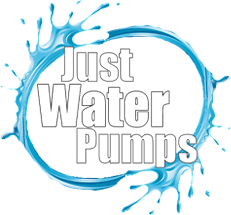Firefighter Pumps - Prepare For Bushfire Season
1st Jun 2019
Are you ready for bushfire season?
A fire plan is the first step to ensuring you are on the way to being bushfire ready. The second step is to ensure you, your equipment and your home are protected.
You need an engine powered pump for both asset protection as well as post fire management of burning fences, surrounding vegetation and other structures including buildings.
Davey manufacture the world-famous Firefighter pump ends in Melbourne and fit them to quality petrol engines from Honda and Briggs & Stratton or diesel engines from Yanmar.
If you already own a Davey Firefighter, there are some simple, but important steps you need to take to get your pump ready for the coming season.
See below for a list of recommendations for effective management and maintenance for Firefighter owners.
1. Know the pump:
It is important all members of the household are aware of the location, operation and fitting of attachments like inlet and outlet hoses to the fire pump.
2. Practice:
Having a well thought-out and rehearsed fire plan is essential to personal survival. Investing some time in the pre-fire season is absolutely vital if a fire situation occurs.
3. Fuel - Petrol:
Many people fail to realise that petrol has a limited life and over time can become 'stale' through a loss of volatility. If an engine is kept fuelled for a long period of time (often over winter), it may not start due to the deterioration of its fuel. A recommended solution to this is to change the fuel every two months either by running the pump or draining the full.
4. Fuel - Diesel:
Diesel has a longer shelf life than petrol, but it needs to be stored at low ambient temperatures to extend this storage time. It is expected that diesel can have a 12 month or longer life if stored at an ambient temperature of 20 degrees Celsius.
5. Engine oils:
Engine oils are another consideration and individual engine manufactures usually offer their own specially branded engine oils to best suite their engines. Synthetic multi-grade oil is not an adequate alternative, hence it is important to follow the manufacturer's engine lubrication recommendations.
6. Running the engine regularly:
This will ensure that oil stays well distributed around the moving parts to provide the best lubrication and a longer working life.
7. Air cleaners:
Ensure your pump has adequate clean air access. The air cleaner or filter needs to be checked and replaced according to the recommendation of the engine manufacturer.
8. Maintenance Plan
Having a regular maintenance regime with regular general checks will ensure that fuel lines are in good condition. It will also ensure that the recoil starter works.
9. Protecting Engine from Heat
Keeping the engine cool has a significant effect on the power that it can deliver. This should be done by protecting the pump from radiant heat in a flame proof enclosure, and adding a mist spray around the pump or its enclosure can also help.
10. Check the plumbing:
Time spent investigating and maintaining the water system is also important.
11. Check for debris:
Debris such as leaves and sticks can impede the inlet system.
12. Check for Airleaks:
It is important to ensure that all gaskets and seals are in good order.
13. Underground Ring Main:
Having an underground ring main installed around your property with durable hydrant or standpipe outlets can give you much greater coverage and even shorter hoses with increased resistance to ember attack.
As the summer fire season approaches, it is important to be prepared. Establish a good fire plan and ensure that all family members have been briefed and trained on how to implement this plan.



